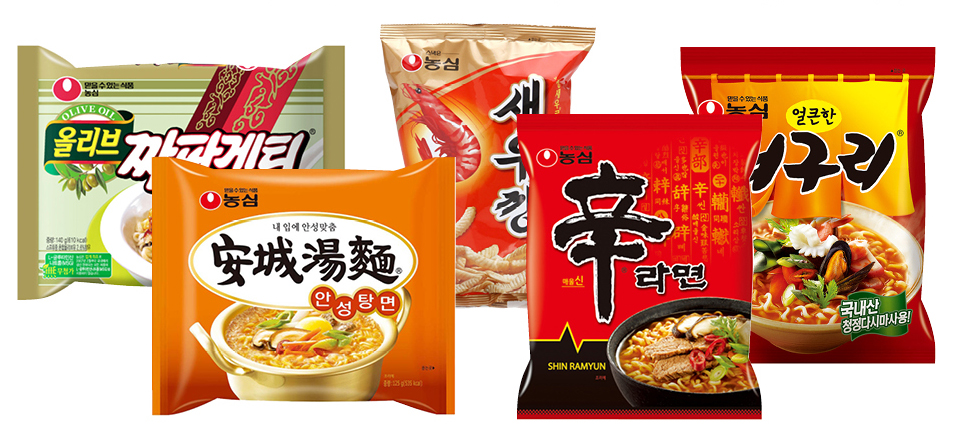Vice Chairman Shin Dong-ik of Nongshim Mega Mart.
Chairman Shin Choon-ho of Nongshim Group has been preparing for his eventual retirement by giving his shares in a number of key affiliates of the business group to his sons, the most recent being 100,000 shares in Nongshim to his third son, Dong-ik, vice chairman of Nongshim Mega Mart, a non-listed company.
His stake in Nongshim now stands at 1.64 percent as he had none before, although he is the majority shareholder of the retail firm which controls NDS, Hotel Nongshim and Nongshim Capital as the affiliates. The 100,000 shares that the chairman gave to his third son were worth 35.4 billion won, and his holdings in Nongshim have fallen to 0.54 percent from 7.4 percent, according to the Financial Supervisory Service.
The ramyun maker has been considered to have drawn up the map for the second-generation takeover of the group some time ago, and is now at a stage where the map is being executed as planned. The elder of the twin brothers, Vice Chairman Shin Dong-won, has been in control of the entire group through Nongshim Holdings, while his younger twin brother Dong-yun has been in charge of running Yulchon Chemical.
Industry sources believe that there will be moves to further tighten the managerial structure in the days ahead. Vice Chairman Shin Dong-won and one of his sons, Sang-yeol, bought 301,500 shares of Nongshim Holdings from Vice Chairman Shin Dong-yun, to strengthen their stakes in the holdings company, Vice chairman Shin Dong-yun and his son bought 278,300 shares of Yulcheon Chemical from Nongshim Holdings for 27.6 billion won.
The “Shin Ramyun Index,” developed by Nongshim last year, shows how serious the maker of the instant ramen product is about becoming a global brand.
Modelled after the informal Big Mac Index, developed by The Economist magazine to track real price equivalents across currencies, the Shin Ramyun Index compares the price of Nongshim’s signature product in many different countries.
What started as a half-joke by a London-based newsmagazine is now a widely cited economic indicator, and Nongshim has similar ambitions for the Shin Ramyun Index - and the namesake product itself.
Shin Ramyun is now being exported to around 70 countries in Asia, North America and Europe. Around 2 billion packages of the noodles have been sold overseas so far.
The combined length of all the noodles in all those meals would wrap around the earth several hundred times, according to Nongshim. Due to substantial exports, the product, priced at less than $1 locally, was once ranked No. 1 in global brand competency by the Japan Management Association.
Nongshim, founded in 1965, now commands over 70 percent of the local instant ramen market, one of the world’s largest.
Its other ramen products, including Neoguri, Ansung Tangmyun and Chapagetti black noodle, all launched between 1982 and 1984, are also consistently popular among locals hoping to eat cheap.
The local food maker also enjoys over 35 percent of the Korean snack market, thanks to popular products such as shrimp crackers Saeukkang. Nongshim is also a big player in other areas, as evidenced by Jeju Samdasu, the best-selling bottled water in Korea.
Food is still its main growth driver, but the company has expanded into a full-fledged business group under Nongshim Holdings, which has 12 affiliates in such areas as chemicals, information technology, advertising, hotels, discount stores and golf clubs.

Packages of various Nongshim products including Ramyun and dried shrimps on display.(Photos: Nongshim)
